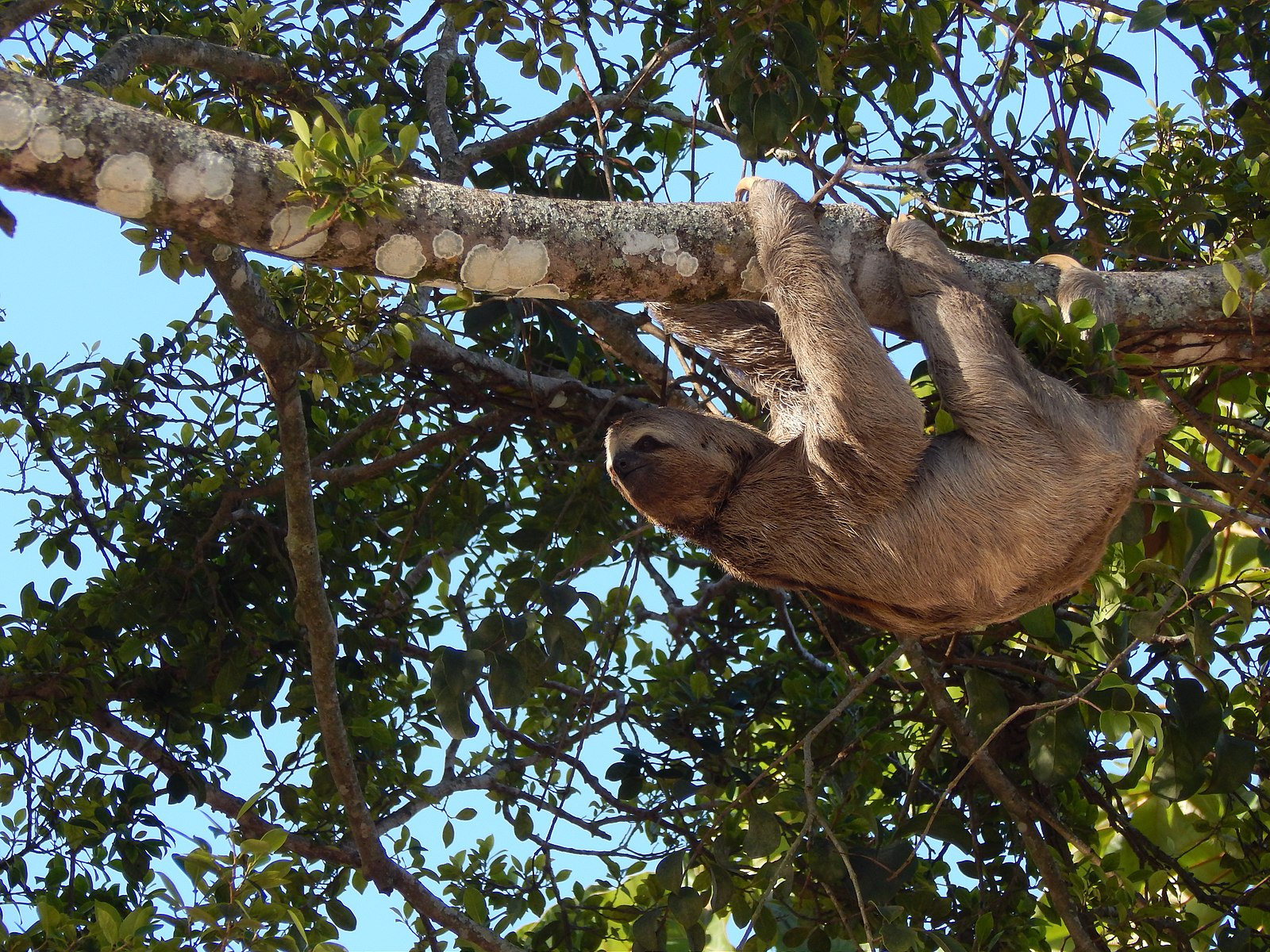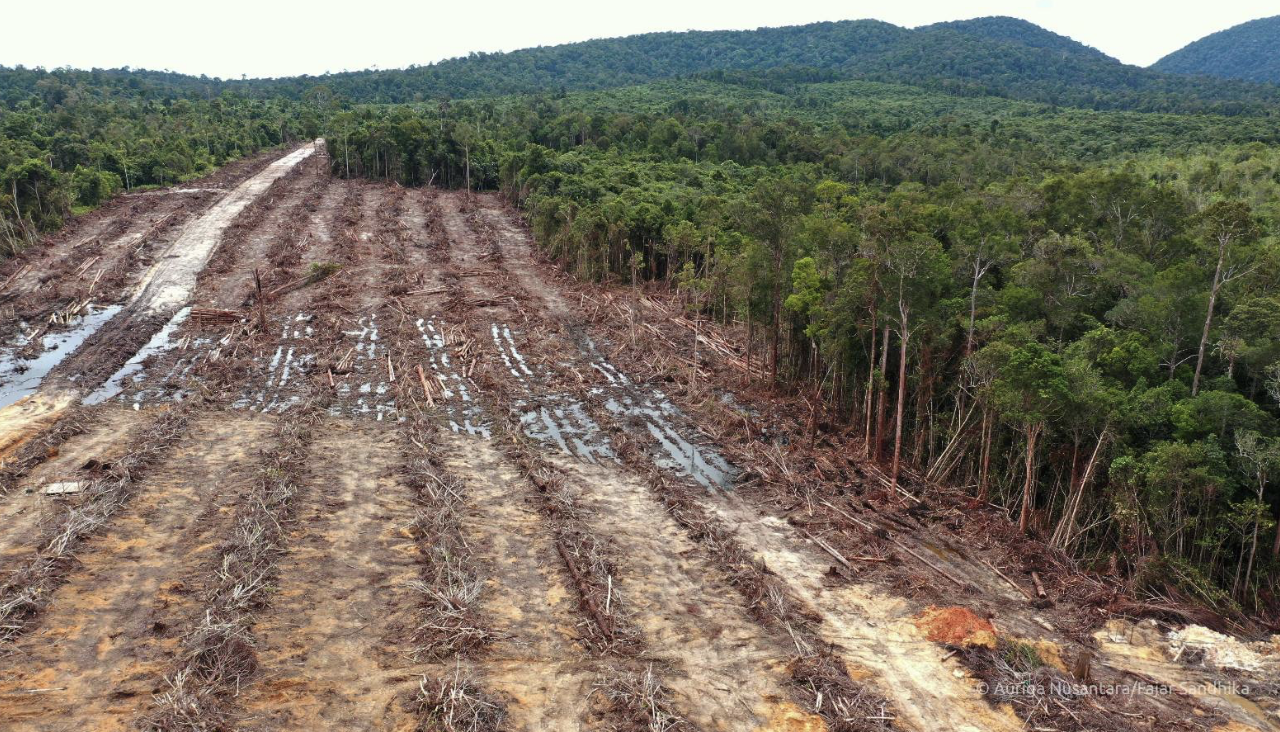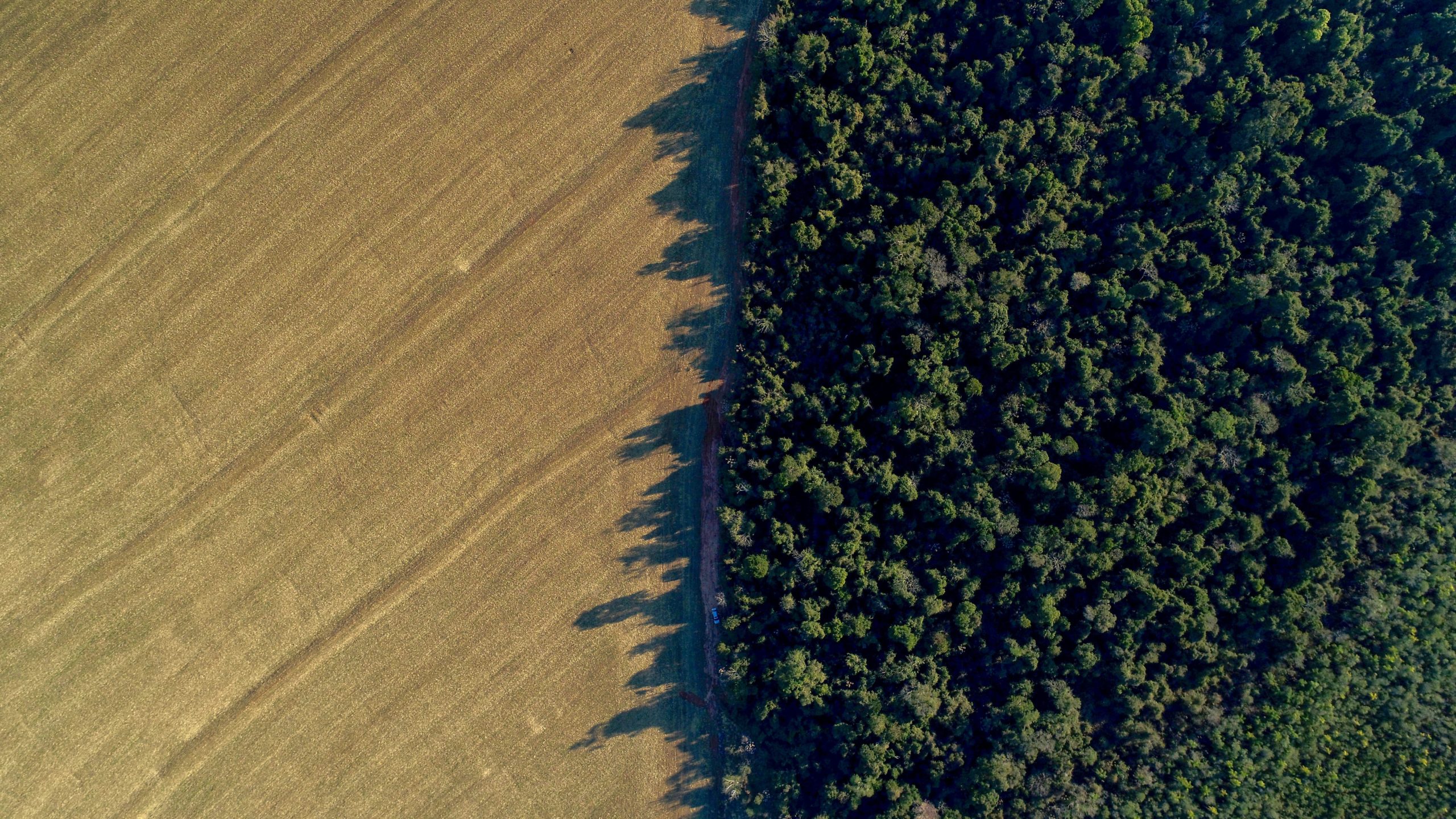
CEO Note: Undoing the Soy Moratorium
Read our press release here | Leia o nosso Comunicado à Imprensa aqui
—
Dear Friend,
The Brazilian competition authority has suspended the Amazon Soy Moratorium, the single most important model for private sector conservation in the world.
The Amazon Soy Moratorium has worked well for nature and for Brazil for almost 20 years and should be a great point of pride not just for the country and for sustainable business. Under it, the largest soy and animal feed companies agreed not to purchase soybeans grown in areas deforested in the Amazon after 2008. In just its first decade, it saved an estimated 18,000 square kilometers from destruction, habitat for jaguars, sloths, and home to communities like the Uru-Eu-Wau-Wau.

A sloth caught venturing into the tree branches of the Rio Tinto-Paraíba city square; Credit: Ade Milson
The Soy Moratorium is a prime example of an economic-environmental success. First, it maintains access for Brazilian agricultural producers to markets. Meat and feed companies first adopted the policy in response to campaigns from Greenpeace and other environmental organizations calling attention to the growing role of soy animal feed in bulldozing the Amazon. To their credit, McDonald’s and supermarket chains like Ahold Delhaize and Tesco acted in response: they told suppliers like Cargill and Bunge that they didn’t want to sell chicken cutlets, ham, or farmed salmon that was killing anteaters, sloths, or other endangered animals. This policy prevented the bottom from falling out of demand for Brazilian soy.
The plummeting deforestation didn’t stop agricultural expansion. Indeed, the area planted with soy in the Brazilian Amazon grew by more than 6 million acres as the region’s plentiful previously-deforested, degraded lands.

Recently burned forest vegetation in an area being prepared for monoculture production, located in a forested zone between the Amazon rainforest and the cerrado in the state of Mato Grosso near the municipality of Alta Floresta, Mato Grosso, Brazil on July 9, 2020. Photo: Christian Braga / FARPA
Forests protected, agriculture expands, markets opened? Win, win, win. But delusional meat and feed industry lobbyists have been pressing authorities to render this voluntary system illegal. They seem to have found influence in Conselho Administrativo de Defesa Econômica – Cade. But their political win will ultimately damage agribusiness itself; indeed, I think it will go down as the greatest example of an industry punching itself in the face in agricultural history. The ruling raises serious questions about who is driving decision-making at this public body. As Brazil’s Environment Ministry publicly wrote in response, the prohibition of the soy Moratorium is transparently illegal: “It is important to remember that the Federal Constitution of 1988 enshrined free competition and free enterprise as fundamental pillars of the economic order, but, in the same provision (art. 170), it also unequivocally established the principle of environmental protection, including through differentiated treatment according to the environmental impact of products and services and their elaboration and provision processes. Thus, any restricted interpretation, which values only free competition without due environmental consideration, incurs in a distortion of the constitutional order itself.” It’s going to be up to higher authorities in the Lula administration and the courts to undo this decision.
In the meantime, Mighty Earth is working with allies to send a clear message to retail sellers of meat, and ensuring widespread media coverage: if the Amazon is no longer protected, they will be but in the position of peddling chicken, pork, and fish responsible for burning of the Amazon. There must be commercial consequences for willful destruction of rainforests. These companies remain well positioned to stop this destruction by stopping financing the companies responsible for deforestation – and we’re going to be making sure they use their ability to do so.
Finally, this decision shows why we can’t trust the meat industry with the fate of Nature, in Brazil or around the world. This industry causes more deforestation than the rest of agriculture combined. It would be one thing if the industry sincerely worked to minimize its footprint by, for instance, just continuing its own successes such as the Amazon Soy Moratorium.
But this is an industry that seems ideologically, politically, and culturally enchanted by the destruction of Nature. In North America, many of the same meat industry players are working with the Trump administration to undo the Endangered Species Act so they can return to persecuting wolves, grizzly bears, and other animals with abandon.
There is no better argument for accelerating the shift to alternative proteins from plants, fungi, and other sources than the meat industry own behavior.
Thanks for your support.
—
© 2025. The text of this article is openly licensed under Creative Commons (CC BY-ND 4.0); you are free to copy and redistribute or republish the article in its entirety with attribution and credit.


